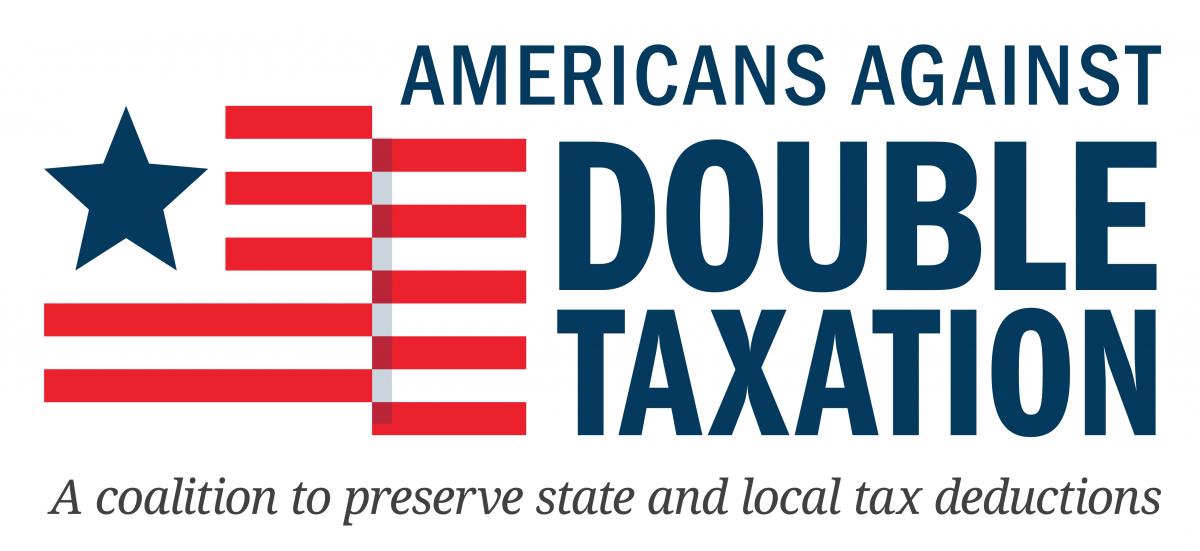SALT deduction on tax reform chopping block

State and local governments, National Sheriffs' Association, National Association of Realtors and more are fighting for the SALT deduction
Calling a proposal to eliminate the state and local tax deduction (SALT) in the federal tax code, “a $1.3 trillion federal money grab,” NACo and coalition partners in Americans Against Double Taxation stepped up their campaign to preserve the deduction as Congressional leaders and the administration seek to drop it in their proposed revision of the code, released Sept. 27 and dubbed “Unified Framework for Fixing Our Broken Tax Code.”

Although the SALT deduction remains at risk, the framework does preserve the tax-exempt status of municipal bonds, another objective of the coalition.
“We are pleased to see the preservation of tax-exempt municipal bonds, a key financing tool counties and states leverage to build roads, schools, hospitals and other public facilities,” NACo Executive Director Matt Chase said.
Americans Against Double Taxation mobilized ahead of the Sept. 27 release of details about the Congressional reform package.
“The elimination of the SALT deduction would hurt our residents, especially middle class homeowners, with a triple whammy of higher federal taxes, declines in property values and threats to essential state and local services, like K-12 schools, public safety and infrastructure improvements,” NACo First Vice President Greg Cox said during a Sept. 21 coalition media call.
Learn More
Read NACo's statement on the administration’s and Congress’ joint tax reform proposal
Myths vs. Facts: The Deduction for State and Local Taxes
Americans Against Double Taxation
NACo blog: Congress sets sights on tax reform, marking county priorities as potential offsets
Do More
Call your representative now and urge them to support both the SALT deduction and tax-exempt municipal bonds during this meeting, especially if they are on the House Ways and Means Committee.
“This is not a partisan issue, this about helping everyday Americans make ends meet. This is about allowing state and communities solve state and local problems.”
The coalition includes 21 members representing levels of state and local governments, school boards and education associations and the National Association of Realtors, the National Sheriffs’ Association and the International Association of Fire Fighters. Organizations representing the same sectors successfully fought for the SALT deduction during the debate over the Tax Reform Act of 1986.
The coalition is fighting attempts to portray this as a benefit to the wealthy or a subsidy for state and local governments.
“If this goes through, instead of allowing working families to deduct the amount they pay in state and local taxes, the federal government will basically be forcing taxpayers, who make up backbone of our community, to pay taxes a second time on the same income,” said Elizabeth Kautz, mayor of Burnsville, Minn. said at a press event announcing the coalition.
“The loss in local revenues could result in a cut in local services. It will be a further erosion of the partnership that we have offered and continued to seek. Any changes will disrupt the ability of state and local government to raise the revenue they need to support critical public services.”
Little Rock, Ark. Mayor Mark Stodola said SALT repeal would put local governments in a difficult position, not only to fund essential services but to work with citizens.
“America’s cities would face enormous pressure to lower local tax rates to offset the decision,” he said. “Federal leaders would wash their hands of the tough decisions that we on the local level…need to make in order to keep our budgets in the black.”
Of the 20 Congressional districts with the most SALT deductions in 2015, 45 percent are represented by Republicans.
“SALT knows no color, there are significant numbers of itemizers in Congressional districts across the country held by Republicans and Democrats,” said Bob Chlopak, manager of Americans Against Double Taxation. “We are looking far and wide but we believe we have a rich pool from which we are going to target and get the votes we need to make it clear that tax reform cannot be passed if repeal of SALT is part of it.”
NACo statement on the administration’s and Congress’ joint tax reform proposal
In response to the release of the congressional and administration tax reform proposal “Unified Framework for Fixing Our Broken Tax Code,” the National Association of Counties issued the following statement. NACo Executive Director Matthew Chase said:
“We are pleased to see the preservation of tax-exempt municipal bonds, a key financing tool counties and states leverage to build roads, schools, hospitals and other public facilities. However, we have major concerns with the proposal to eliminate federal deductibility of state and local taxes, or SALT.
“Counties are opposed to this $1.3 trillion federal money grab. Eliminating the SALT deduction would force undue burden upon the backs of middle-class homeowners in every state.
“Even if the standard deduction were doubled, middle-class homeowners would see their federal tax bills increase by an average of $815.
“There is a reason the SALT provision extends back to 1913, the emergency tax code in 1862 and even to our founding fathers: local communities are uniquely positioned to meet local needs. State and local taxes – the only mandatory payments that are federally deductible – allow local communities to meet local needs.
“While we share the goals of kick-starting the national economy and reducing federal deficits, the reality of this proposal doesn’t match the rhetoric. We can’t achieve these goals by forcing residents to pay taxes on their taxes.
“Counties stand ready to work with the administration and Congress to pursue common-sense tax reform that benefits all of our residents.”
Attachments
Related News

White House OMB releases final revisions federal Uniform Guidance (2 CFR Part 200)
The White House OMB released final revisions to the federal Uniform Guidance that outline compliance and reporting requirements for federal financial assistance.


